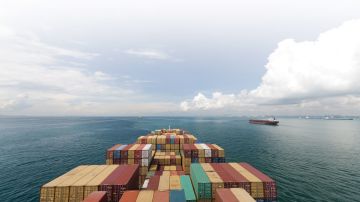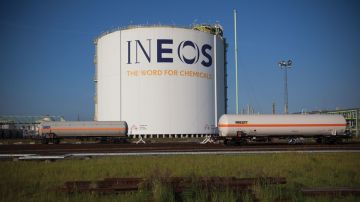Some of the world’s leading chemical companies have challenged themselves to tackle a global problem to preserve the Earth’s natural resources.
By 2030 INEOS, AGA, AkzoNobel, Borealis and Perstorp, the chemical cluster in Stenungsund, Sweden, want to be producing plastics and chemicals used for tubes, pipes, flooring, paints, cables, detergents, and many other applications, where possible, without fossil oil, coal or natural gas.
For INEOS in Stenungsund, which relies solely on fossil fuels, it will be a tough challenge. But Lars Josefsson, Chairman of INEOS Sverige AB, says finding and switching to renewable fuels is vitally important, not only to Sweden but the rest of the world if it is to help reverse the effects of climate change.
“It is a major challenge but we want to help build a future society where resources are used efficiently and all our products are recycled,” he said.
“We want to use renewable resources to develop more sustainable products.”
The chemical cluster with the five companies in Stenungsund, are viewed among the best in the world. As such, they have already secured significant funding since launching their vision – Sustainable Chemistry 2030.
“If we succeed, it would mean a significant improvement towards the environment and the economic prosperity of our region,” said Lars.
“We know that it’s possible but it cannot happen by itself. It requires many players to achieve it, including the collaboration with academia, politicians and other industries. We all need to work together.”
And that’s what they have been doing since they outlined their vision.
So far they have won funding from, among others, the European Union and several Swedish government agencies.
Their vision to break their dependence on the Earth’s reserves of oil and gas, has also earned them the respect of the local community.
Within 20 years, the five key companies believe Stenungsund will be the engine in Western Sweden’s economy, the hub for manufacturing of sustainable products within the chemical industry, and the place for companies with similar mindsets to thrive and develop.
But the journey towards 2030 has arguably already started. Both INEOS and Borealis have been involved in pushing and supporting Stena Recycling’s plans to develop the technology to enable thousands of tons of cable plastics to be recycled and upgraded to new products yearly. The recycling started a couple of years ago and every year thousands of tons of plastics (PVC and PE) is successfully recycled.
“That previously wasn’t possible due to the high content of metal in the material,” said Lars.
Another example involves AkzoNobel, which invest a lot in research and development. One end – commercial – result is a water-based and effective dirt and grease remover, which now allows more than 97% of water to be re-used in car washes. Most of all new car washing stations in Sweden are built using this technology.
“Energy is also very important,” said Lars. “And we have a project ongoing for energy saving.
“A total site analysis study carried out by Chalmers University of Technology and funded by the Swedish energy agency is showing a big saving potential if we look at all the five companies together.
“A second phase has now been started to find out how this potential can be realised.”
The chemical cluster has also launched a project for increased plastic recycling from hospitals.
“There is a lot of plastic used in hospitals including PVC,” said Lars.
“We have now a consortium of partners, including the county of Stockholm and the west coast region of Sweden. In addition to INEOS other partners include Universities and Institutes of Sweden, Recycling Companies and PVC MedAlliance*. The aim is to establishing a sustainable management system for medical plastic waste through close collaboration between various stakeholders and field projects.”
Another project is a joint program with leading Swedish paper and pulp companies to explore possibly sourcing renewable raw materials from forests. Sweden, which has the third largest paper and pulp industry in Europe, is in a unique position in that large swathes of the country are covered in forest.
But with paper consumption decreasing, the industry is looking for new applications.
The project, Forest-Chemistry, is supported by the Swedish government agency VINNOVA.
Sustainable Chemistry 2030, meanwhile, has also won support from academic institutions such as Chalmers University of Technology, SP Technical Research Institute of Sweden, The University of Gothenburg, IVL, and Luleå/Umeå University among others.
“Our vision, Sustainable Chemistry 2030, has increased the co-operation in the cluster and is a platform to communicate that chemistry is needed to move towards a bio-based society,” said Lars. “This will be very important when we also discuss other important issues with the politicians.”
Lars said the year 2030 provides clear focus and maintains the pressure to achieve our target.
“We think it’s possible to reach our goal,” he said.
*Read more about PVC Med Alliance a www.pvcmed.org/















